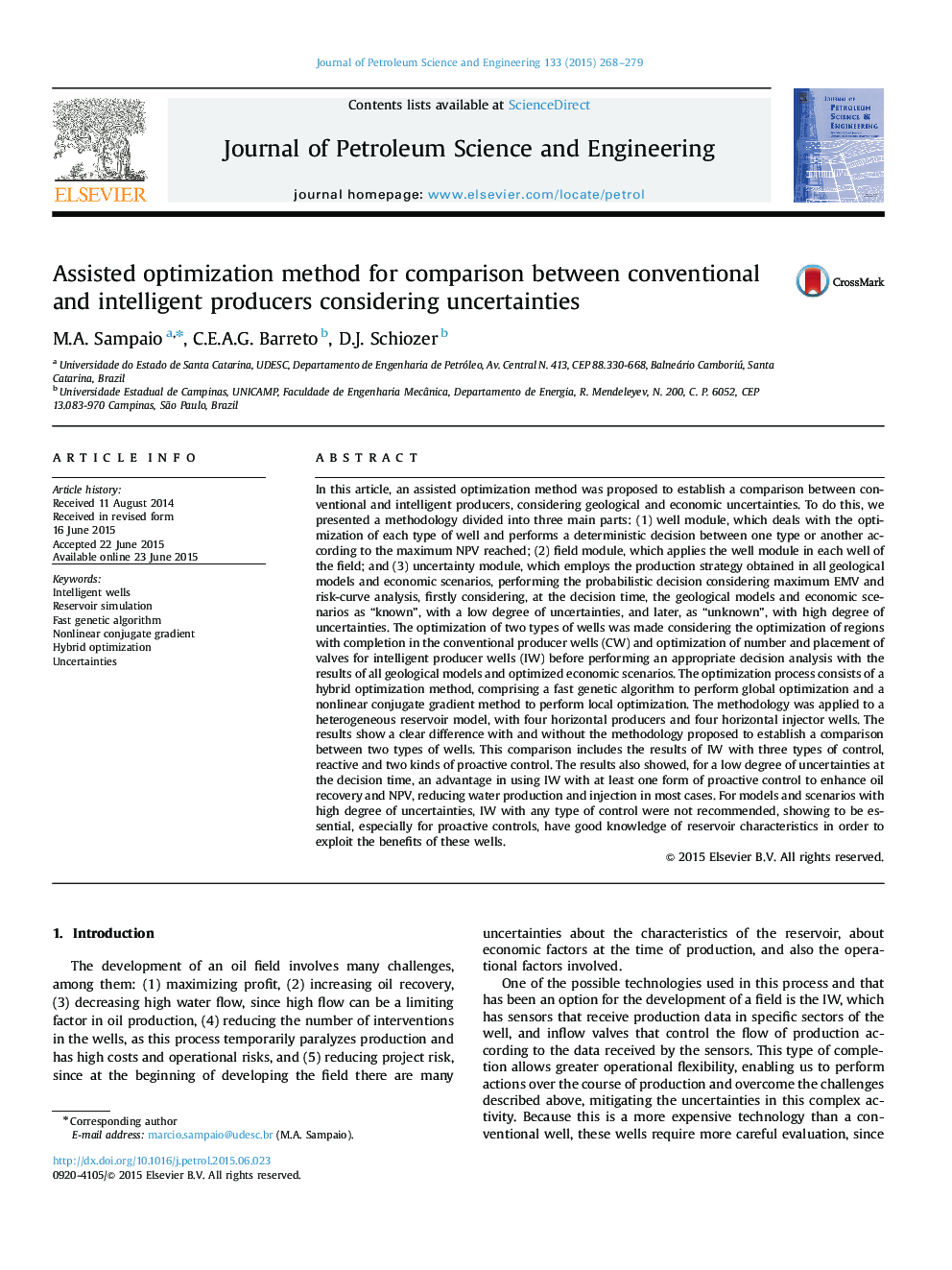| Article ID | Journal | Published Year | Pages | File Type |
|---|---|---|---|---|
| 1754719 | Journal of Petroleum Science and Engineering | 2015 | 12 Pages |
•Evaluation of intelligent producers considering geological and economic uncertainties.•Intelligent producers optimized with global and local approaches.•Proactive control of intelligent producers with high and low degree of uncertainties.•Optimization of number and placement of valves of intelligent producers.•Comparison between conventional and intelligent producers.
In this article, an assisted optimization method was proposed to establish a comparison between conventional and intelligent producers, considering geological and economic uncertainties. To do this, we presented a methodology divided into three main parts: (1) well module, which deals with the optimization of each type of well and performs a deterministic decision between one type or another according to the maximum NPV reached; (2) field module, which applies the well module in each well of the field; and (3) uncertainty module, which employs the production strategy obtained in all geological models and economic scenarios, performing the probabilistic decision considering maximum EMV and risk-curve analysis, firstly considering, at the decision time, the geological models and economic scenarios as “known”, with a low degree of uncertainties, and later, as “unknown”, with high degree of uncertainties. The optimization of two types of wells was made considering the optimization of regions with completion in the conventional producer wells (CW) and optimization of number and placement of valves for intelligent producer wells (IW) before performing an appropriate decision analysis with the results of all geological models and optimized economic scenarios. The optimization process consists of a hybrid optimization method, comprising a fast genetic algorithm to perform global optimization and a nonlinear conjugate gradient method to perform local optimization. The methodology was applied to a heterogeneous reservoir model, with four horizontal producers and four horizontal injector wells. The results show a clear difference with and without the methodology proposed to establish a comparison between two types of wells. This comparison includes the results of IW with three types of control, reactive and two kinds of proactive control. The results also showed, for a low degree of uncertainties at the decision time, an advantage in using IW with at least one form of proactive control to enhance oil recovery and NPV, reducing water production and injection in most cases. For models and scenarios with high degree of uncertainties, IW with any type of control were not recommended, showing to be essential, especially for proactive controls, have good knowledge of reservoir characteristics in order to exploit the benefits of these wells.
